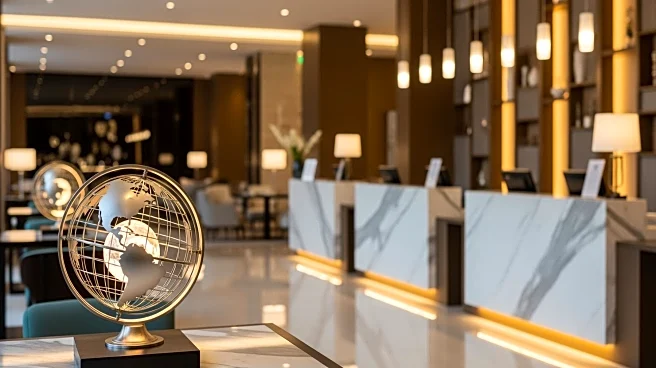What's Happening?
Luvu Brands, Inc., a company known for its consumer lifestyle brands such as Liberator, Jaxx, and Avana, has released its annual 10-K report detailing its financial performance and strategic initiatives.
The report highlights a net loss of $0.448 million for the fiscal year, compared to a loss of $0.399 million the previous year. This financial downturn is attributed to decreased net sales and increased operating expenses. Despite these challenges, Luvu Brands is focusing on cost reduction strategies and exploring additional debt financing to support its operations. The company operates a vertically integrated manufacturing facility in Atlanta, Georgia, which enhances its production efficiency and market responsiveness.
Why It's Important?
The financial challenges faced by Luvu Brands underscore the difficulties many companies encounter in maintaining profitability amid rising costs and market fluctuations. The company's efforts to reduce costs and explore debt financing are crucial for sustaining operations and potentially improving its financial health. This situation reflects broader economic pressures impacting consumer lifestyle brands, which must adapt to changing consumer preferences and economic conditions. The company's strategic focus on sustainability and efficient manufacturing may offer a competitive edge in the long term.
What's Next?
Luvu Brands plans to continue its cost reduction strategies and may seek additional debt financing if necessary. The company aims to achieve long-term growth by expanding its distribution channels and customer base. It is also working to resolve tax-related matters with the IRS and Georgia Department of Revenue, which could impact its financial outlook. The company's focus on improving manufacturing efficiency and shifting some production to low-cost international manufacturers may help mitigate rising raw material and labor costs.
Beyond the Headlines
Luvu Brands' emphasis on sustainability initiatives, such as repurposing foam trim and reducing carbon footprint through vacuum-compressed packaging, highlights the growing importance of environmental responsibility in business operations. These efforts not only contribute to cost savings but also align with increasing consumer demand for eco-friendly products. The company's ability to balance financial performance with sustainability goals may influence its reputation and market position.









